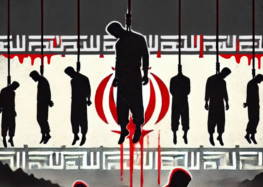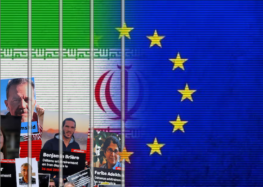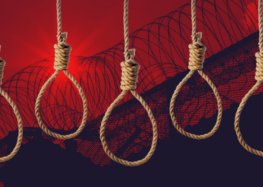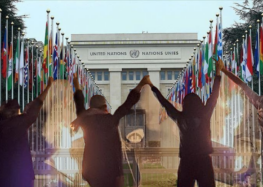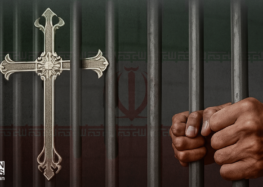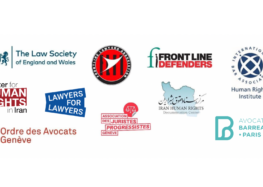Two Iranian-Arabs Executed in Secret
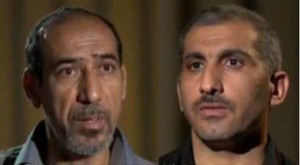
Ali Chabishat and Khaled Mousavi, two Iranian-Arabs from the southern city of Ahvaz in Khuzestan Province, have been secretly executed and buried in a remote area.
Death sentences followed forced confessions broadcast by IRIB
Ali Chabishat and Khaled Mousavi, two Iranian-Arabs from the southern city of Ahvaz in Khuzestan Province, have been secretly executed and buried in a remote area, the International Campaign for Human Rights in Iran has learned.
Karim Dahimi, a human rights activist in Ahvaz, told the Campaign that families of the two prisoners were informed of the executions on June 12, 2014, but they were not told when they took place. Intelligence Ministry officials in Ahvaz have only shown Chabishat’s grave to his family. The authorities have banned relatives from holding mourning ceremonies.
“On June 12, Ali Chabishat’s brother and son were summoned by the Intelligence Ministry office in Ahvaz. Agents there informed them of the execution and then took them outside the city to a remote area in Ramhormoz and said Ali was buried there,” Dahimi said.
“However,” he continued, “the authorities have not said on what exact date Ali was executed. They said it was none of [the family’s] business. They said they are not allowed to hold mourning ceremonies. They said they will contact Khaled [Mousavi]’s family as well to let them know where he has been buried.”
Dahimi added that when people in the village of Khalaf Moslem, where Ali Chabishat was a resident, gathered in front of his home to mourn his death, agents attacked and arrested Chabishat’s son and brother. Both were released the next day after promising to limit mourning ceremonies to immediate family members only.
Chabishat and Mousavi were arrested on November 11, 2012 on charges of blowing up a gas pipeline in Ahvaz. However, news reports said the explosion was an accident. The head of the Khuzestan gas company had ruled out sabotage and said the incident was under investigation.
In an interview with the Campaign on May 22, 2014, Hakim Chabishat, Ali Chabishat’s nephew, said that when the family contacted the lawyer who represented the two men to find out about their whereabouts and their case, he told them that he had no news of them. Chabishat told the Campaign that the lawyer had been unable to see his clients even once during their imprisonment. “They [Ali Chabishat and Khaled Mousavi] were not responsible for the pipeline explosion. We believe the Intelligence Ministry had to find some people to blame for this incident,” Hakim Chabishat told the Campaign. “The only evidence in the case is the confessions they made under torture. They were tortured to the point where they were forced to confess,” said Hakim Chabishat.
In an interview on March 28, 2014, a source close to the family of Ali Chabishat told the Campaign that Ali and Khaled told their families during their first visit that their interrogators had shown them a document with these charges on them, and forced them to sign the documents under torture.
The state-controlled Press TV aired the confessions by Chabishat and Mousavi, in which they admitted to blowing up the gas pipeline, and in August 2013, the two men were found guilty of sedition and acts against the security of the Islamic Republic and sentenced to death by Judge Seyed Mohammad Bagher Mousavi of Branch 4 of the Islamic Revolution Court in Ahvaz.
Forcing false confessions from detainees under torture, which is then used as the main “evidence” against the defendants to convict them during their trials, is a routine practice of Iranian Intelligence, security, and Judicial officials. Typically, these forced confessions are then broadcast on national TV by the Islamic of Republic of Iran Broadcasting (IRIB), the state broadcasting agency, which works hand-in-hand with the Intelligence and security officials.

